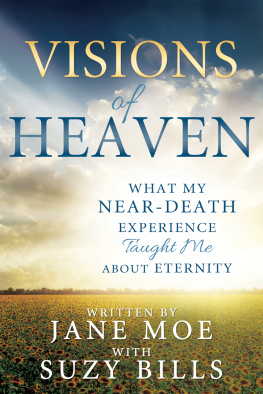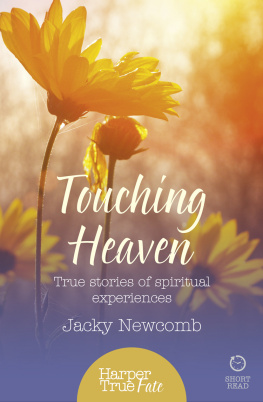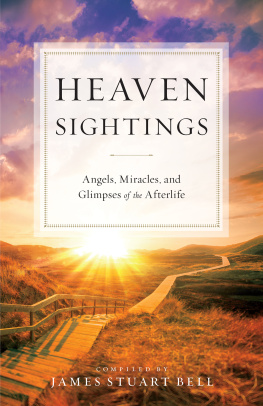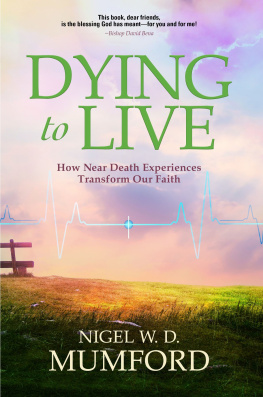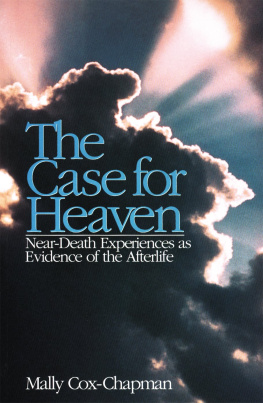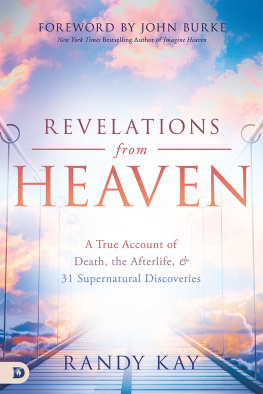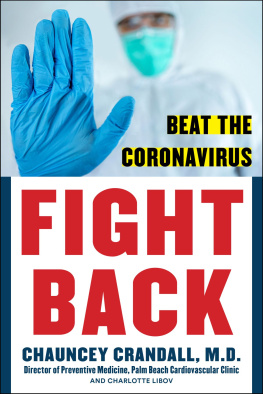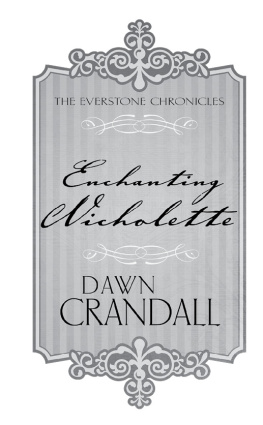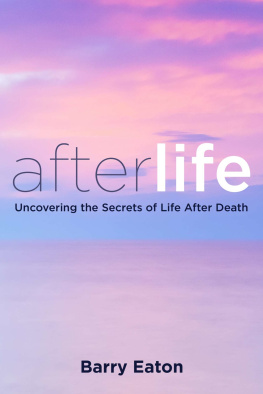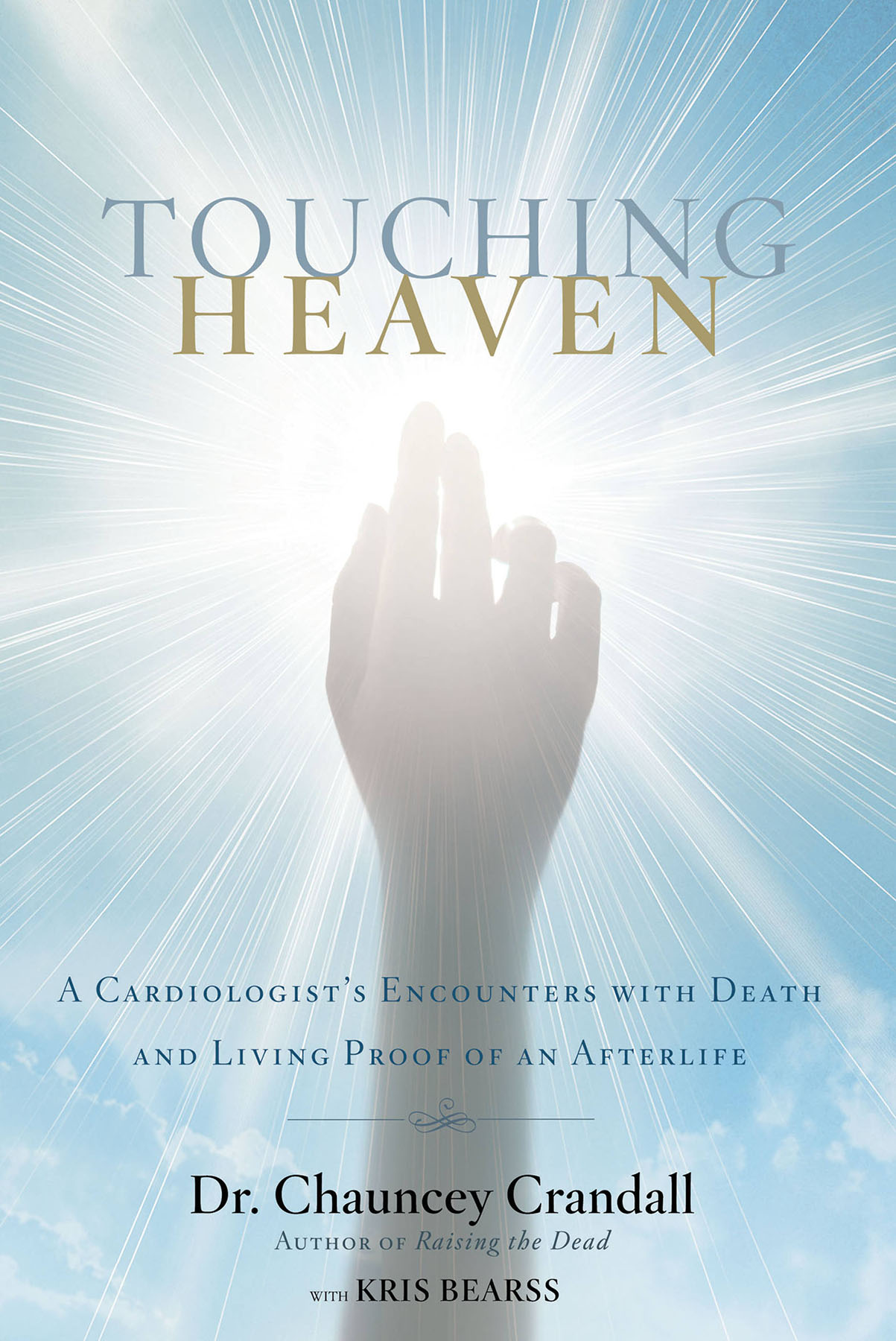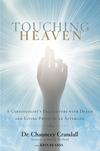In accordance with the U.S. Copyright Act of 1976, the scanning, uploading, and electronic sharing of any part of this book without the permission of the publisher constitute unlawful piracy and theft of the authors intellectual property. If you would like to use material from the book (other than for review purposes), prior written permission must be obtained by contacting the publisher at permissions@hbgusa.com. Thank you for your support of the authors rights.
and my tribe, the patients the Lord has entrusted to my care.
the kingdom of God.
We know the truth, not only by reason, but also by the heart.
MY FIRST ENCOUNTER with the reality of heaven wasnt anything like what youve read in the books about near-death experiences. In fact, I was very much alive and wellan energetic nineteen-year-old working as an orderly at a noted community hospital in northern Virginia prior to medical school.
Because this facility was just across the state line from Washington, DC, its patients routinely included politicians, academics, government officials, and military personnel. I was happy to carry out my daily tasks of drawing blood, pushing wheelchairs, and cleaning rooms, but I also got to do rounds with the doctors and nurses there, which is where I first became acquainted with Karl. He was in his late sixties and had been in the Allied forces during World War II. In our hospitalwhere hed been a patient for nearly a monthhe was still fighting a war, but against a different enemy: bladder cancer.
When I met him, he was full of life. And judging by his kindness and his many interesting stories, I knew he was a good man who had lived well; I couldnt help but be drawn to him. What I didnt know was that Karl was dying.
I frequently stopped by his room so I could hear his wartime tales and take in his wisdom. Meanwhile, I was trying to decide which field of medicine to go into. Desiring to gain exposure to other areas, I one day told the head of the pathology lab, I want to observe you the next time youre working up a case.
The call came one beautiful Saturday morning. I left Fairfaxs sunshine and clear skies behind and headed for the lab, which was housed in the basement of the hospital. After scrubbing in and donning the medical exam apparel, I pushed open the metal doors, and there on a metal table in that cold, gray room was a corpseits chest open and arms stretched out as if on a crucifix. My senses were charged and raw. This was a side of medicine, a side of human experience, Id been shielded from till now.
As I approached the exam table, I saw the lifeless face belonging to that human shelland instantly nausea grabbed me.
Whats wrong? asked the pathologist.
I know this man, I said, trembling. I have to go.
I hurried out of the room, the unmistakable smell of death following my every step, my thoughts running wild.
I flashed back to my conversations with Karl. He had been alive the last time Id seen him just a few days agoheart pumping, veins plumped with life-giving blood, sitting up, breathing, talking. In our times together hed recounted stories of battlefield courage and foxhole fears. Hed been a gentle warrior and a family man. A good man. And now, the way I saw it, he was not only dead but empty of everything that had been him.
The nave kid who had walked into that postmortem examining room was suddenly eye-to-eye with a question that demanded an answer. The words collided in my mind and tumbled out of my mouth in a desperate, angry cry. Is this all there is?
I stood in that basement hallway, my heart throbbing, my emotions on overload, my stomach nauseated. The seeming futility and finality of everything we do in this life covered me like a fog. In that Saturday-morning moment, all I could think of was my gentle friendonce an awarded soldier with a loving family, now reduced to a lifeless cavity on a metal gurney in a room the sun never sees. Death seemed so decisive, so horrific and wickedand it terrified me.
I decided I never wanted to attend an autopsy again.
I also decided I hated death and would devote myself to fighting it with everything I could muster. Perhaps thats why I became a cardiologist: a healthy heart is the opposite of death; a healthy heart means theres hope. As long as you have a pulse, you arent in cold storage awaiting autopsy. As long as theres no flatline on your electrocardiogram, you havent arrived at your final resting place.
My medical resolve to prevent death and promote health, however, couldnt deliver me from the reality that I was presented with in that defining moment in the pathology lab. This was not a physical question but a metaphysical onea spiritual concern that had everything to do with the condition of my heart of hearts: I had to decide whether or not there was more to life than this life. Whether there is a heavenly realm and existence beyond this one, and what that might mean for my time on earth if its true.
Its a decision we all make.
I found evidences of the answer while treating patients at home in the United States, and while ministering in the spiritual battlefields of Third World countries abroad. While sitting by the bedsides of the dying, and while standing over those who were once as good as deadand yet still live. I even saw proofs of this life when I lost my own son.
The answer changed how I practice medicine, and it would change me.
These are the stories that helped me realize the heartand the realityof heaven.
WITHIN A YEAR of that autopsy awakening, I became a Christian. And shortly after that, I started medical school. However, my newfound faith didnt eliminate my need for hard evidence about the afterlife and whether this life is all there is.
As a medical doctor-in-training, I was taught to interpret reality in strictly physical terms. Yet by the time one of my twin sons became terminally ill, Id seen enough to be convinced of a greater reality than the one we see with our eyes alone. My experiences in medicinea professional career that now spans four decadeshave only served to verify this conclusion.
Till now, I have kept these evidences mostly to myself; after all, Im a doctor, not a chaplain. But Ive had so many views of what lies past the veil of ordinary life that I am compelled to share them.
I know others have done this already in some fashion, reporting their personalized accounts of what happens after we die. Whats different about me is that I see evidences of the next realm all the time, in my work and ministry; every day, this life gives us glimpses of the next. These snapshotsfrom my patients bedsides and my personal experiencesare what I want to share with you.
I have seen the dead come to life. Literally.
I have heard the tales that dead men and women tell once theyve returned from the brink.
I have witnessed astonishing healings and impossible recoveries.
I have been in that sacred moment, even with my own son, when a life passes from this world into the next. (One nurse said it well: Sometimes you can feel a persons spirit leave the room.)
I have witnessed the peaceful passing of those who were confident of heaven, as well as the sometimes-fearful transition of those who scoffed at it.


